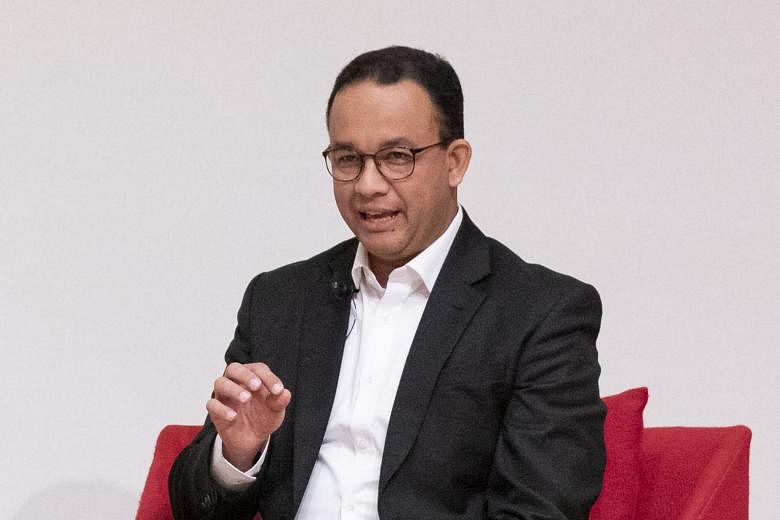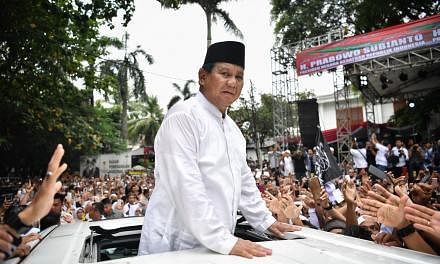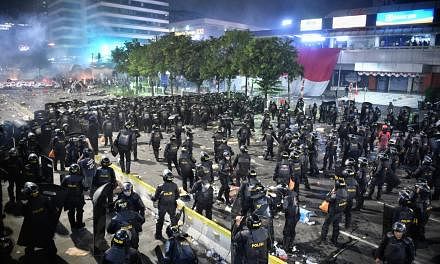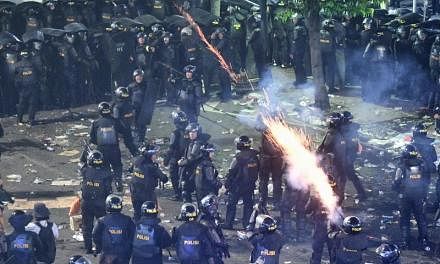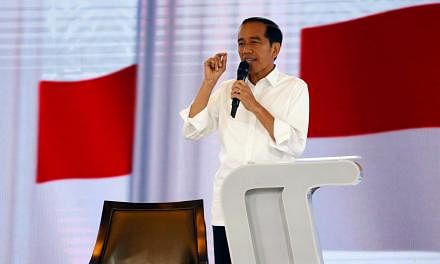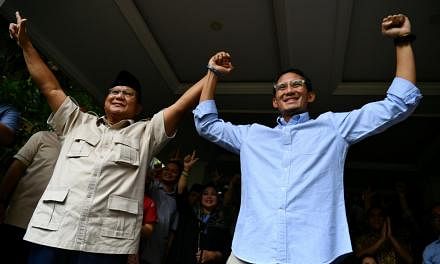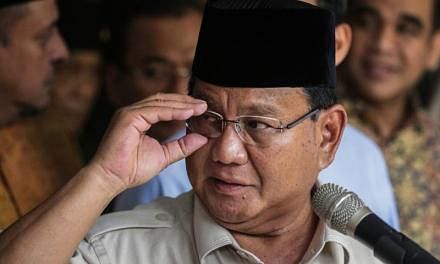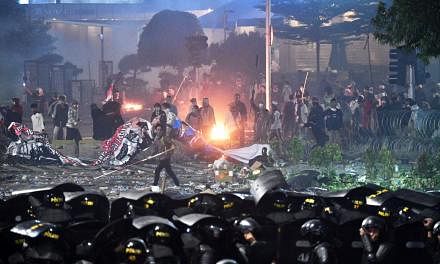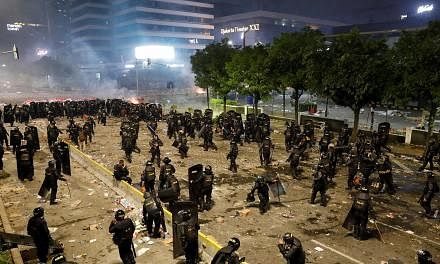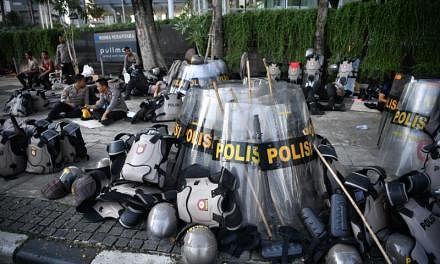JAKARTA (THE JAKARTA POST/ASIA NEWS NETWORK) - Shortly after winning the Jakarta gubernatorial election in 2017, Jakarta Governor Anies Baswedan pledged that he would make Jakarta more visible on the international stage, and one way to do that was by attending global meetings held for the world's major cities.
On Sunday (May 19), Mr Anies did just that. He left for Tokyo to attend the Urban 20 Forum where he shared the stage with Rome Mayor Virginia Raggi in a panel discussion.
The only problem was that two days later, Jakarta was engulfed in a riot that some say was the worst since the May 1998 unrest that helped unseat strongman Suharto.
Prior to leaving town for Tokyo, Mr Anies had instructed all hospitals in the city to be ready for possible victims of clashes that could take place when supporters of Gerindra Party chairman Prabowo Subianto took to the streets and called for the General Elections Commission to annul the result of the 2019 presidential election.
With hundreds injured from clashes with riot police and eight people reported dead, Mr Anies appeared to have made the right call, but many others have faulted him for leaving Jakarta when he knew that political unrest was imminent.
Soon after angry protesters began occupying Jakarta's main streets, the hashtag #AniesDimana (Where is Anies) started trending on Twitter.
"The governor is going on a picnic, the deputy governor is gone... while the city is on fire. People could not make a living," one Twitter user with the handle @desindra posted on the popular social media site.
Others simply posted photos of the rioting and wrote the hashtag #AniesDimana.
For city councillor Gembong Warsono of the Indonesian Democratic Party of Struggle (PDI-P), who is a member of the council's Commission A overseeing governance, Mr Anies' biggest lapse was that he failed to issue security advice for Jakartans.
"There have been no efforts to prepare Jakartans for what will happen. And this is not possible because the governor left (the city)," he told The Jakarta Post on Thursday.
Even after the unrest subsided, Mr Anies failed to call for calm, Mr Gembong said. "Until May 22, I didn't hear the governor calling for people not to get involved in anarchy," he said. "Why? I don't know. Ask Anies why he did not issue such a call?"
A few days before Wednesday's (May 22) riot, several regional leaders of Jakarta's satellite cities called on residents not to travel to Jakarta.
Bekasi Mayor Rahmat Effendi in West Java, Tangerang Mayor Arief R Wismansyah and Tangerang Regent Ahmed Zaki Iskandar were some of the leaders who made the call.
A number of governors including East Java Governor Khofifah Indar Parawansa, Yogyakarta Governor Hamengkubuwono X, West Nusa Tenggara Governor Zulkieflimansyah, South Sulawesi Governor Nurdin Abdullah and Maluku Governor Murad Ismail, had also called on residents not to join the political protest.
On Tuesday, after touring the section of Jl MH Thamrin where clashes took place the night before, Mr Anies issued a statement defending the protesters' right to express their opinion, given that it was their constitutional right.
"We cannot cut down the most basic things in our democracy, that is freedom of assembly. (The city administration's) part is to ensure that activities held in the capital run safely and securely, as well as ensuring that Jakarta areas are calm," he said.
He also rejected the notion that Wednesday's riot was reminiscent of the May 1998 riots which left Jakarta paralysed for days. The 1998 riots were part of a chain of events that led to the resignation of then-strongman president Suharto.
"I must underline that the situation in Jakarta is relatively stable because this is different from what happened in 1998. In 1998, rioting took place throughout Jakarta. Looting in stores, shopping malls. But yesterday, that did not happen. Demonstrations and clashes took place only in Tanah Abang, Slipi and Thamrin," he said.
Mr Anies also went on to confirm that the death toll from Wednesday's riot was eight, something the police has yet to confirm.
In a press briefing on Thursday, National Police spokesman Muhamad Iqbal said seven people, all of whom were protesters, died during Wednesday's clashes.
On Wednesday, Mr Anies was the first official to give the number of fatalities from the clashes, leaving security officials at the national level scrambling to give their own version of events.
Public policy expert from Trisakti University, Mr Trubus Rahadiansyah, said that as Jakarta governor, Mr Anies could have done more to prepare the city for a possible emergency, rather than focusing on counting the death toll in the aftermath of Wednesday's unrest.
He suggested that Mr Anies could have briefed all local leaders down to the neighbourhood unit and community unit level to identify potential spots for the gathering of protesters and monitor the entry of people from outside of Jakarta.
Councilor Hasbiallah Ilyas of the National Awakening Party (PKB) said that multiple statements from Mr Anies that contradicted the stance taken by the central government could be an indication of his difficult relationship with the administration of President Joko Widodo.
